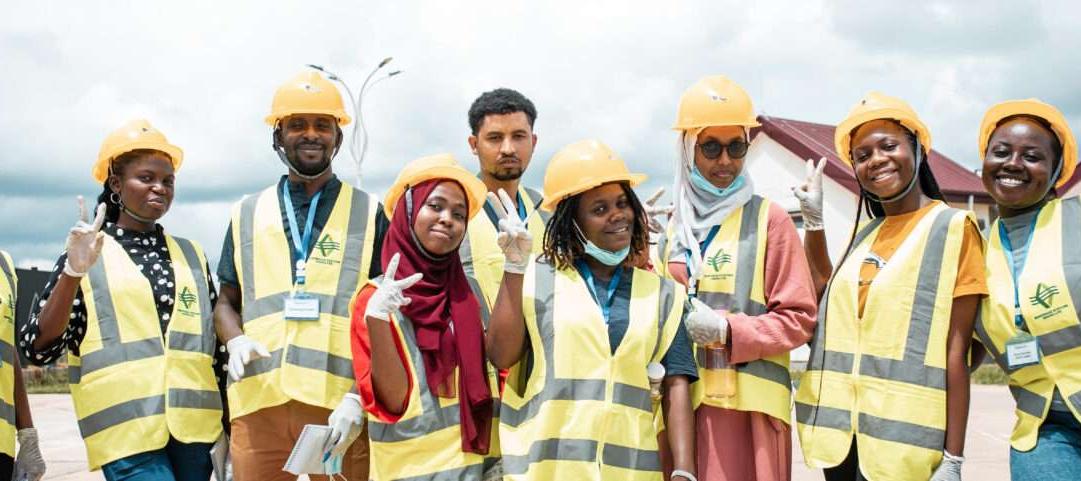How partnerships and student mobility help with reaching the SDG for sustainable water supply
Water and sanitation are crucial to human health, but in many parts of the world, access to these basic necessities remains a challenge. Sub-Saharan Africa is particularly affected. The ALL4WASH project aims to address this challenge by bringing together academic institutions across Africa and Europe to confront the local and global challenges of water supply and sanitation through cooperation.
Recently edited: 22. December 2025
About the project
Responsible: Professor Razak Seidu, from the Norwegian University of Science and Technology
Duration: 2021 - 2026
Area: Environmental Sciences and Technology, and Ecology
Partners: Kwame Nkrumah University of Science and Technology (Ghana), ZA-University of Venda (South-Africa), The Nelson Mandela African Institute of Technology (Tanzania), National School of Engineers Bamako (Mali), Addis Ababa University (Ethiopia) and Kampala International University (Uganda)
Funding: 6 694 093 NOK
The project consortium, ‘North-SouthAlliance for inclusive water, sanitation, and hygiene’ (ALL4WASH) is led by Professor Razak Seidu. The alliance includes the Norwegian University of Science and Technology, three African Centers of Excellence in water and sanitation based in Ethiopia, Ghana, and Tanzania and their alliance Universities in Mali, Uganda, and South Africa.
Through co-curriculum development, student/academic staff exchange, joint research projects, and co-supervision, the alliance seeks to strengthen inclusive education and research in sustainable water supply.
How is student mobility going to help with reaching the goal of sustainable water supply
“Students’ mobility is key to reaching the goal of sustainable water supply,” Razak Seidu says.
“Through mobility, students can build their capacity by learning from other cultures, share and cross-fertilize ideas on sustainable technologies and practices in the water sector for advancing the SDGs in their respective countries. Furthermore, students through mobility will enhance their transversal skills and will develop requisite knowledge from an international perspective to be active participants in the knowledge economy of sustainable water and sanitation. For this reason, the ALL4WASH project prioritises North-South, and South-South mobilities where students get the opportunity to work on joint projects, and by extension build their capacity in sustainable water and sanitation practices for application in their home countries,” Razak Seidu explains.
Measuring the impact of mobility on the project success
International student exchange programs are a valuable opportunity for students to broaden their horizons, learn new skills, and make valuable connections with peers from around the world. But how can we ensure that the benefits of these experiences extend beyond the individual student to their home country and university? For the ALL4WASH project, tracking the activities of students who go on mobility is a key component.
The project has developed a platform for all students who go on mobility, which allows coordinators to stay in touch with them and monitor their activities once they return home. In addition, the project has established alumni groups where the project leader, Professor Razak Seidu, stays in constant contact with the students to learn about how they are contributing to the water and sanitation sector in their countries.
By tracking the impact of these mobility experiences, the ALL4WASH project can ensure that its goals of strengthening inclusive education and research in sustainable water supply and sanitation are being achieved not only at the individual student level, but also at the broader societal level.
Students' new perspectives
As part of the ALL4WASH project, students from various African and Norwegian universities engaged in international mobility experiences. Here are the experiences and key takeaways from three of these students.
Rebecca Narvi from Norway, pursuing a master’s degree in environmental engineering, worked on various environmental issues during the project. She developed hands-on experience and project management skills, valuable for her future career. Rebecca encourages others to participate in exchange programmes for global exposure.
Ogwang Nickson from Uganda, with a background in Civil and Chemical Engineering, participated in a summer school program on sustainable building practices. It broadened his perspective and motivated him to promote sustainability in his home country.
Serwah Akoto from Ghana, a civil engineering student, joined the project to expand her knowledge in infrastructure and sanitation. She learned about waste management and recycling from a Norwegian perspective, which will benefit her future career.